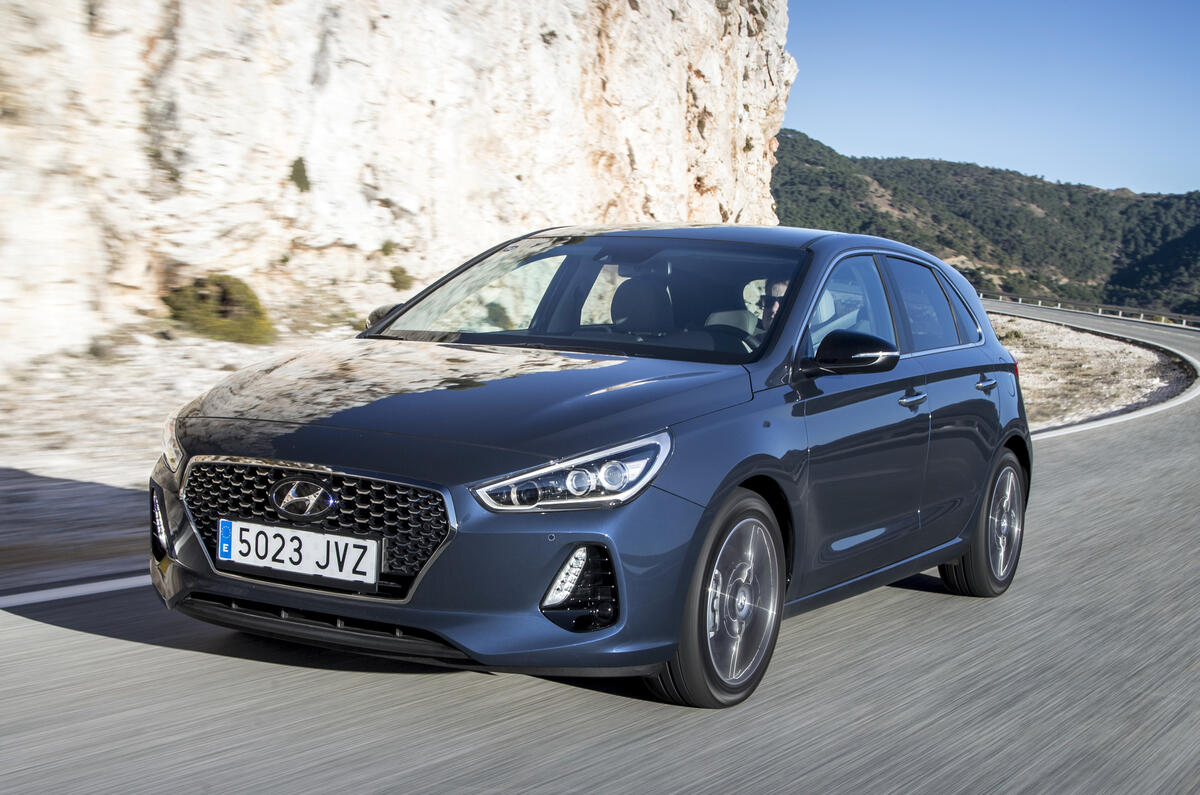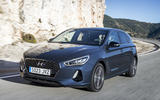What is it?
Hyundai’s presence in Europe is now so extensive that you’d be forgiven for thinking that the family-sized Hyundai i30 hatchback has slipped somewhat in importance – trumped by cooler products (the Ioniq) - or else more profitable ones (the Santa Fe). Not a bit of it, though. The first i30, launched in 2007, effectively set Hyundai on its current trajectory on the back of a eurocentric development programme.
The car's insurgency into the continent’s biggest single market segment continues with this the third-generation model - first shown at last year's Paris motor show, accompanied by the tagline: “the people’s car” – a broadside statement of ambition if ever there was one. Hyundai, as usual, makes no bones about its approach: the competition – all of it – has been ruthlessly benchmarked with the intention of getting the i30 to measure up to the best.
As a result, while the old car’s architecture remains, it has been comprehensively overhauled; doubling the amount of high-strength steel in the body and shedding weight along the way. Rigidity, unsurprisingly, is better too, as is size, with the model being marginally bigger. It's also lower-riding, which is good, because Hyundai wants the i30 to look better, too, citing design as one of the primary reasons why buyers chose the previous model.
Increased dynamism is also high on the agenda. The last i30 was worthy enough, but largely forgettable to drive. This time around, while it has retained the front MacPherson struts and rear multi-link suspension, the firm claims to have opted for more performance oriented dampers and quickened up the steering by around 10%.
Another thing that's quicker is the all-new engine added to the line-up: a 138bhp 1.4-litre turbocharged petrol four-cylinder to replace the outdated Gamma unit and supplement the 1.0-litre three-cylinder and 1.6-litre diesel carried over. Until the N-badged performance arrives later this year, it’ll be the quickest accelerating version of the i30 and the direct competitor for a raft of like-minded options. We sampled it in Premium trim (or what passes for that grade in Spain) with the standard six-speed manual gearbox.

























Join the debate
Add your comment
Probably far better than you think!
Given the choice of this or an Astra/Peugeot 308 there'd be no contest.
I'd take the Korean every time.
I bought a 55 plate Sonata for my son 6 years ago, and it has been amazingly reliable.
I likes this more than the old one,
Why could they not have
Just tell it like it is
I suspect that there is a reasonable car here which the writer personally doesn't like very much...
LP in Brighton wrote:
Now ain't that the truth!!! Its frustrating when people say stuff like for just £500 you could have a VW or an Audi implying the Korean (or whatever) car is overpriced? Why shouldn't someone else make a better car than a VW or one that commands a higher price? they don't have a monopoly (except perhaps in the press)